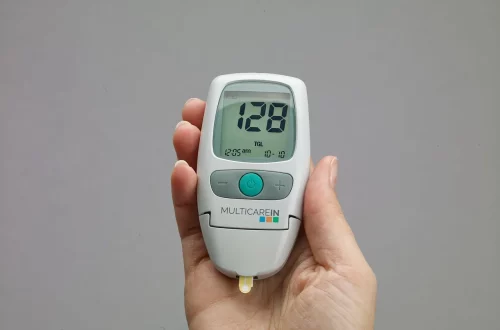
Intriguing Dark Would You Rather Questions to Test Your Morality
In the realm of human interaction, questions often serve as a gateway to deeper understanding, revealing our values, beliefs, and moral compass. Among the myriad of questions one can ponder, “Would You Rather” queries stand out as particularly engaging. They challenge us to make choices that can be both entertaining and thought-provoking. However, when these questions take a darker turn, they compel us to confront the more sinister aspects of our morality and ethics.
Dark “Would You Rather” questions are not merely conversation starters; they are a reflection of our innermost thoughts and dilemmas. They force us to navigate through our fears, desires, and moral boundaries, often leading to unexpected revelations about ourselves and those around us. In a world where the line between right and wrong is not always clear, these questions can serve as a mirror, reflecting our values and principles. What would you sacrifice for the greater good? How far would you go to protect your loved ones? These are not just hypothetical scenarios; they can spark meaningful discussions and insights into human nature.
As we delve into this intriguing landscape, prepare to explore choices that challenge your ethical boundaries, test your sense of empathy, and provoke discussions that linger long after the questions have been posed.
The Nature of Morality in Dark Choices
Morality is a complex construct, shaped by cultural, social, and personal influences. When faced with dark “Would You Rather” questions, we are often pushed to the edge of our moral beliefs. These scenarios can range from the mildly unsettling to the deeply disturbing, each designed to probe our ethical stance.
Consider a question like, “Would you rather save a loved one at the cost of ten strangers’ lives or sacrifice that loved one to save the ten?” This dilemma places the value of individual life against the collective good, forcing us to weigh our emotional attachments against a broader ethical framework. Such questions often lead to intense debates, as individuals grapple with their instinctual responses versus their philosophical beliefs about morality.
The nature of these questions lies in their ability to expose inconsistencies in our moral reasoning. Many may instinctively lean towards saving a loved one, prioritizing personal connections over abstract ethical standards. However, this choice raises further questions about the value of life, the significance of personal relationships, and the extent of our responsibilities to others.
Furthermore, dark “Would You Rather” scenarios can also reveal our fears and biases. For instance, if posed with a question that involves a choice between personal safety and the well-being of others, our responses can illuminate our values and priorities. Do we prioritize our safety, or do we feel a moral obligation to help others, even at our own expense?
Ultimately, engaging with these dark choices encourages a deeper understanding of our own moral frameworks. They invite us to confront uncomfortable truths about ourselves and our beliefs, ultimately enriching our conversations and reflections on what it means to be human.
The Psychological Impact of Dark Choices
Exploring dark “Would You Rather” questions can have profound psychological effects on individuals. These scenarios often elicit strong emotional responses, prompting us to confront our fears, anxieties, and ethical dilemmas in a safe, controlled environment.
One significant psychological aspect of engaging with these questions is the concept of empathy. When posed with a dark choice, individuals must consider not just their own perspective, but also the experiences and emotions of others involved. For example, a question like, “Would you rather be the one who causes a tragic accident or be the victim of it?” places the responder in a position of moral contemplation. This scenario compels individuals to explore feelings of guilt, responsibility, and the impact of their actions on others.
Moreover, dark “Would You Rather” questions can also serve as a form of catharsis. By articulating our thoughts on challenging scenarios, we may find ourselves processing complex emotions that we might otherwise avoid. This can lead to greater self-awareness and understanding, allowing individuals to confront their own moral beliefs and the motivations behind their choices.
However, it’s essential to approach these questions with caution. While they can foster deep discussions and insights, they may also trigger negative emotions or trauma, especially for individuals who have experienced similar situations in real life. It’s crucial to create a safe space for these discussions, ensuring that everyone feels comfortable sharing their thoughts without fear of judgment.
In summary, the psychological impact of dark “Would You Rather” questions is multifaceted. They can enhance empathy, promote self-reflection, and provide an opportunity for catharsis, but they should be approached mindfully to avoid unintended emotional distress.
Engaging with dark “Would You Rather” questions can serve as an excellent way to cultivate meaningful conversations among friends, family, or even strangers. These questions often spark lively debates and discussions that go beyond surface-level interactions, encouraging participants to share their thoughts and feelings on complex moral issues.
One of the key benefits of using dark scenarios in conversations is their ability to break down social barriers. When individuals are faced with challenging dilemmas, they often feel more comfortable expressing their authentic selves. This openness can lead to deeper connections and a greater understanding of one another’s perspectives.
For instance, consider a scenario where the question posed is, “Would you rather know the exact date of your death or live in uncertainty?” This question invites individuals to reflect on their own beliefs about fate, mortality, and the nature of life. As participants discuss their views, they may find common ground or discover differences that lead to enriching conversations about life choices and values.
Moreover, discussing dark “Would You Rather” questions allows for the exploration of various philosophical and ethical theories. Participants can engage in debates around utilitarianism, deontological ethics, and virtue ethics, examining how these frameworks apply to the scenarios presented. This not only deepens understanding of moral philosophy but also encourages critical thinking and respectful discourse.
However, it’s important to approach these discussions with sensitivity. Some individuals may find certain topics triggering or uncomfortable. Establishing clear boundaries and ensuring that everyone is willing to engage in such discussions can help create a respectful and inclusive environment.
In essence, dark “Would You Rather” questions can be powerful tools for fostering meaningful conversations. They encourage vulnerability, promote critical thinking, and can lead to deeper connections between individuals as they navigate the complexities of morality and ethics together.
Final Thoughts on Embracing Moral Dilemmas
In conclusion, engaging with dark “Would You Rather” questions offers a unique opportunity to explore the intricacies of morality and human nature. These thought-provoking scenarios challenge us to confront our beliefs, values, and the ethical dilemmas that shape our lives.
By navigating through these dark choices, we gain insight into our own moral frameworks and the complexities of human behavior. Whether it sparks lively discussions among friends or prompts individual reflection, the exploration of these questions can be both enlightening and transformative.
As we continue to engage with such moral dilemmas, it’s vital to approach them with an open mind and a willingness to reflect. The conversations they inspire can lead to greater empathy, understanding, and ultimately a more profound connection to ourselves and those around us. So, the next time you find yourself faced with a dark “Would You Rather” question, embrace the opportunity to delve into the complexities of morality and discover what lies within your own heart and mind.




